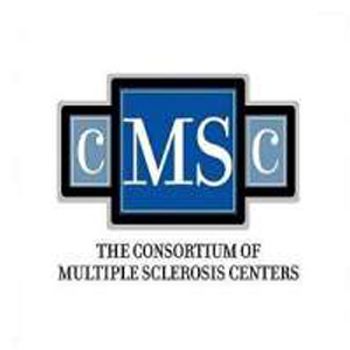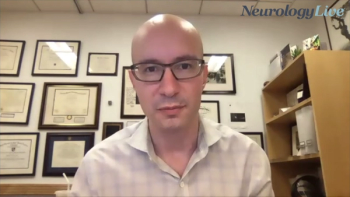
The chief scientific officer of the Parkinson’s Foundation detailed the benefits expanded access to genetic testing for patients with Parkinson disease would bring to the research setting.

The chief scientific officer of the Parkinson’s Foundation detailed the benefits expanded access to genetic testing for patients with Parkinson disease would bring to the research setting.

Sharon Hesterlee, PhD, the executive vice president and chief research officer at MDA spoke to the benefits of its new partnership with DNAnexus.

Recent studies of the CSF P-tau217 blood biomarker suggest it may help to simplify the diagnosis of Alzheimer disease.

The Consortium of Multiple Sclerosis Centers is seeking poster and platform presentations for the 2021 Annual Meeting, which will take place June 2–5, 2021.

The associate professor of neurology at the Icahn School of Medicine at Mount Sinai addresses the need for new treatments for MS spasticity.

The NDA is supported by the phase 3 STOP 301 trial, which included more than 5650 migraine attacks in patients with or without aura.

The vice president of Clinical Research at Eisai provides updates on the MOMENTUM trials which will examine lorcaserin as a potential treatment for patients with Dravet syndrome.

The professor from the Universite de Sherbrooke also discusses other factors that increase cognitive decline in patients with MCI.

Frailty index score can identify patients at risk for cognitive dysfunction and might be an important marker with potential prognostic value.

The director of the Montefiore Einstein Center for the Aging Brain provided insight on how his studies may bring Alzheimer disease 1 step closer to prevention.

This latest FDA indication includes adjunctive therapy for those aged 4 years and older in both the CV and intravenous formulations of the UCB product.

The first trial of tranexamic acid in patients with known ongoing intracerebral hemorrhage shows insignificance compared with placebo, with future studies of simpler recruitment methods needed.

Jacqueline French, MD, director, Translational Research and Clinical Trials in Epilepsy, NYU Grossman School of Medicine, spoke to the takeaways of a recent study of nonmotor seizures.

The director of the neurology residency training program at the Icahn School of Medicine at Mount Sinai addresses the challenges of approving cannabinoid products in the US.

NeurologyLive spoke with Julie Bernhardt, PhD, to learn more about her investigations into developing guidelines for very early mobilization for stroke treatment.

Episode 3 of the AUPN Leadership Minute features Rohit Das, MD, of University of Texas Southwestern Medical Center at Dallas; and Mehmood Rashid, MD, of University of Toledo. [WATCH TIME: 4 minutes]

Women who did not work for pay post-childbearing represented the greatest later-life cognitive decline population in the first ever study that evaluated influence of work-family profiles.

Here's what is coming soon to NeurologyLive.

Jacqueline French, MD, director, Translational Research and Clinical Trials in Epilepsy, NYU Grossman School of Medicine, discussed the need to improve early identification of patients with focal epilepsy.

The professor from the Universite de Sherbrooke discusses how his recent study supports the concept of brain energy rescue.

The director of the Montefiore Einstein Center for the Aging Brain discussed the advantages of non-invasive brain stimulation and what has been previously observed in patients with Alzheimer disease.

Researchers will aim to create and validate a risk calculator and screening tool to identify and test individuals with high risk of cognitive decline.

Neurology News Network for the week ending November 14, 2020.

The executive VP and chief research officer of MDA also discussed future plans on making MOVR and its platform accessible to centers outside of the MDA network.

Take 5 minutes to catch up on NeurologyLive's highlights from the week ending November 13, 2020.

Compared to other forms of CBT, pharmacotherapy, and no treatment, digital CBT offered a more than $640 net positive benefit in 94.7% of Markov model simulations.

The chief scientific officer of the Parkinson’s Foundation discussed what has previously been observed in genetic Parkinson disease and what gaps the PD GENEration initiative may fill.

COVID-19 positive patients with Guillain-Barre syndrome were predominately of demyelinating subtype and appeared more severe than non-COVID-19 patients with Guillain-Barré syndrome.

The findings of a prospective, multicenter study support the results of previous single center studies.

A net benefit was observed for all functional outcomes across the entire range of the modified Rankin Scale despite an increased risk of symptomatic intracranial hemorrhage.